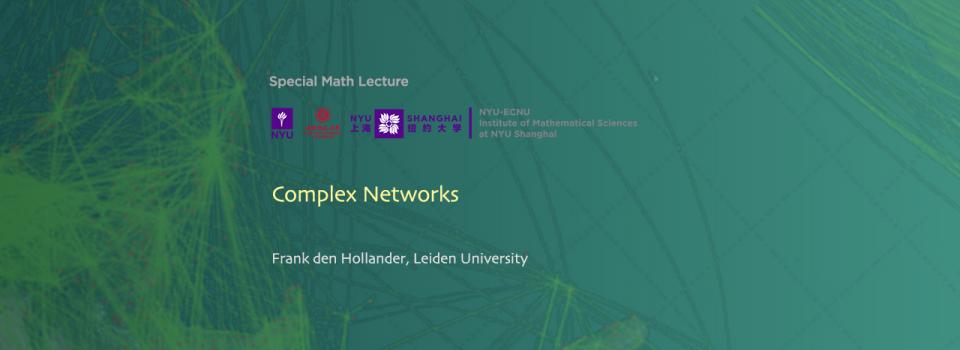
Abstract:
Transportation networks, communication networks and social networks form the backbone of modern society. In recent years there has been a growing fascination with the complex connectedness such networks provide. This connectedness manifests itself in many ways: in the rapid growth of Internet and the World-Wide Web, in the ease with which global communication takes place, in the speed at which news and information travel around the world, and in the fast spread of an epidemic or a financial crisis. These phenomena involve networks, incentives, and the aggregate behaviour of groups of people. They are based on the links that connect people and their decisions, with global consequences. The science of complex networks constitutes a young and active area of research, inspired by the empirical study of real-world networks.
In two lectures, I will present various examples of random graphs that are used to model real-world networks. Despite their different appearance, these networks have much in common, which is why mathematics has a lot to offer. I will address questions about the structure of networks and the functionality of networks. During the lectures, there will be plenty of time for discussion.
No prior knowledge of complex networks or probability theory is required. The lectures are aimed at students at the undergraduate and graduate level interested in learning more about the interface between mathematics and network science.
Biography:
Frank received his Ph.D. at the Leiden University in 1985, under the supervision of Piet Kasteleyn. Since then he has worked at the universities of Delft, Utrecht, Nijmegen and Eindhoven. He is currently Full Professor of probability theory at the Leiden University.
Frank works in probability theory, statistical physics, ergodic theory, population genetics and complex networks. His main focus has been on interacting particle systems, phase transitions and disordered media.
Frank has received multiple grants from the Netherlands Organisation for Scientific Research, as well as an advanced grant from the European Reseach Council. He is also one of the Principle Investigators of the Dutch Gravitation program NETWORKS, a collaboration between researchers from Amsterdam, Leiden and Eindhoven that combines stochastics and algorithmics to solve network problems.
Frank was elected to the Royal Netherlands Academy of Arts and Sciences in 2005. In 2016, he became Knight in the Order of the Dutch Lion. In 2018 he received a Humboldt Research Award.
Frank has been Visiting Professor in Bonn, Erlangen, Gottingen, Heidelberg, Toronto and Vancouver. He has served on many national and international advisory boards. He is currently chair of the Advisory Council for the Natural and Technical Sciences of the Royal Netherlands Academy of Arts and Sciences.
He has lectured at conferences, workshops and summer school around the world, and co-organised 55 national and international workshops. He is the author of 170 research papers and 3 monographs. He has supervised 22 Ph.D. students and 34 postdocs.
Seminar by the NYU-ECNU Institute of Mathematical Sciences at NYU Shanghai


